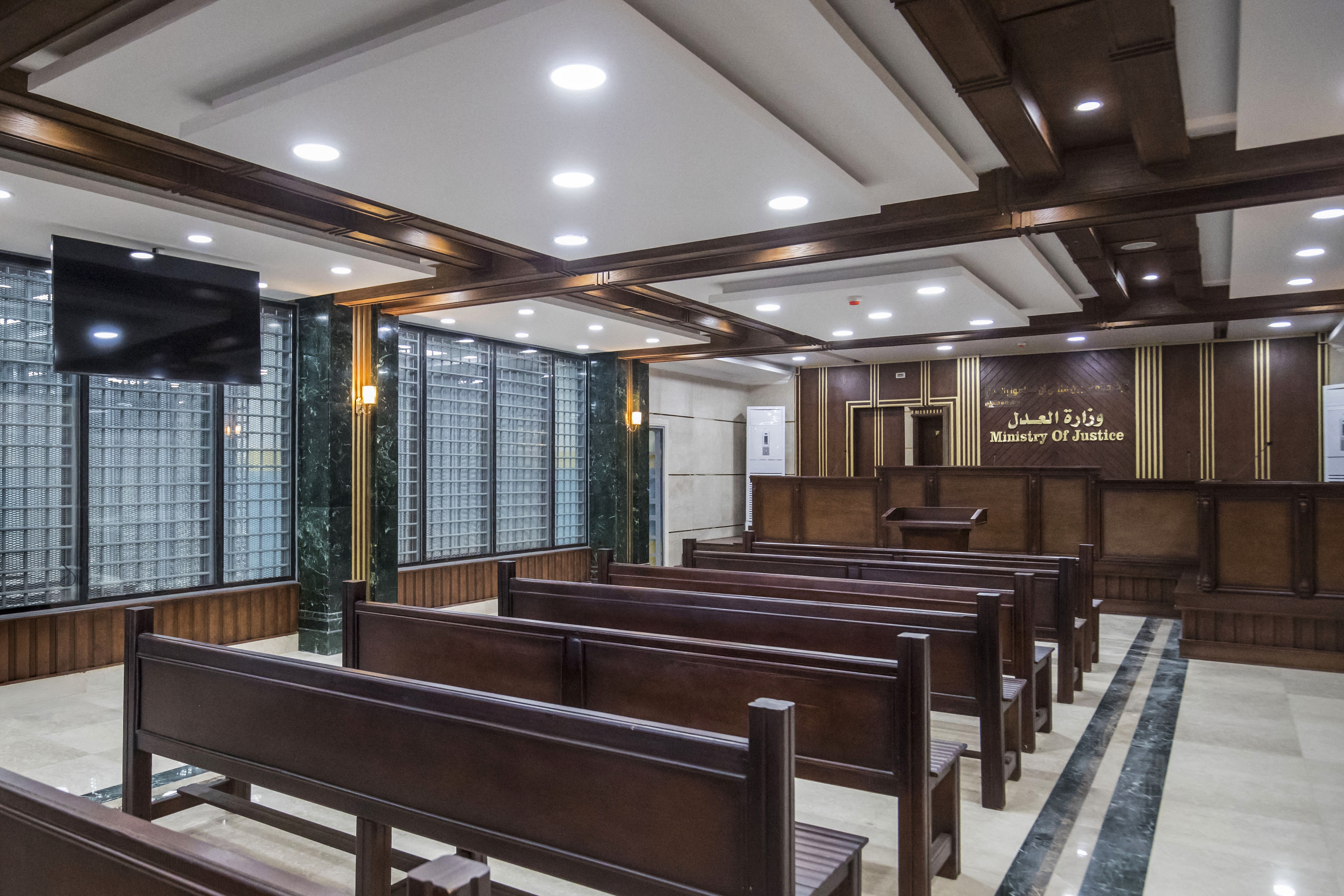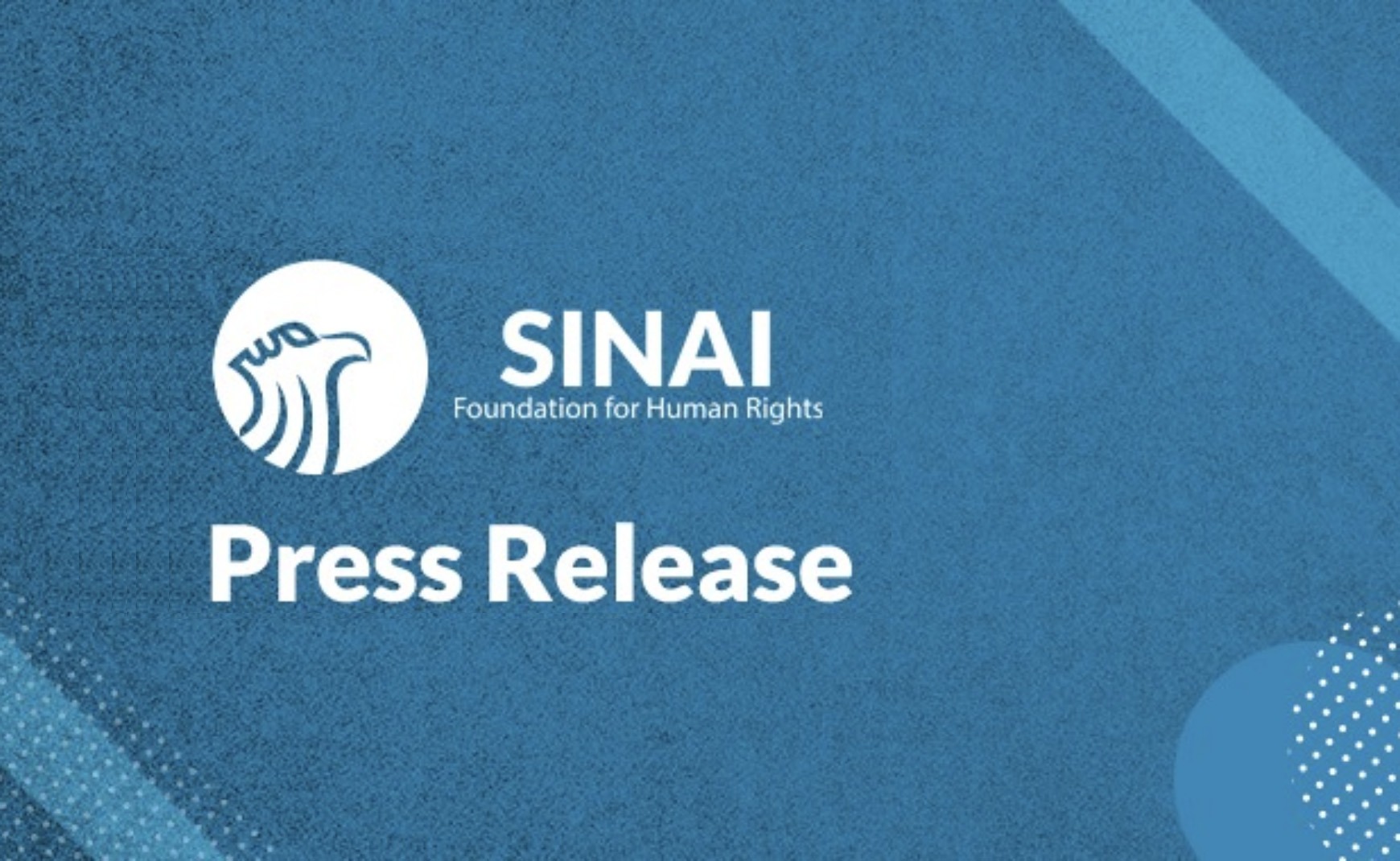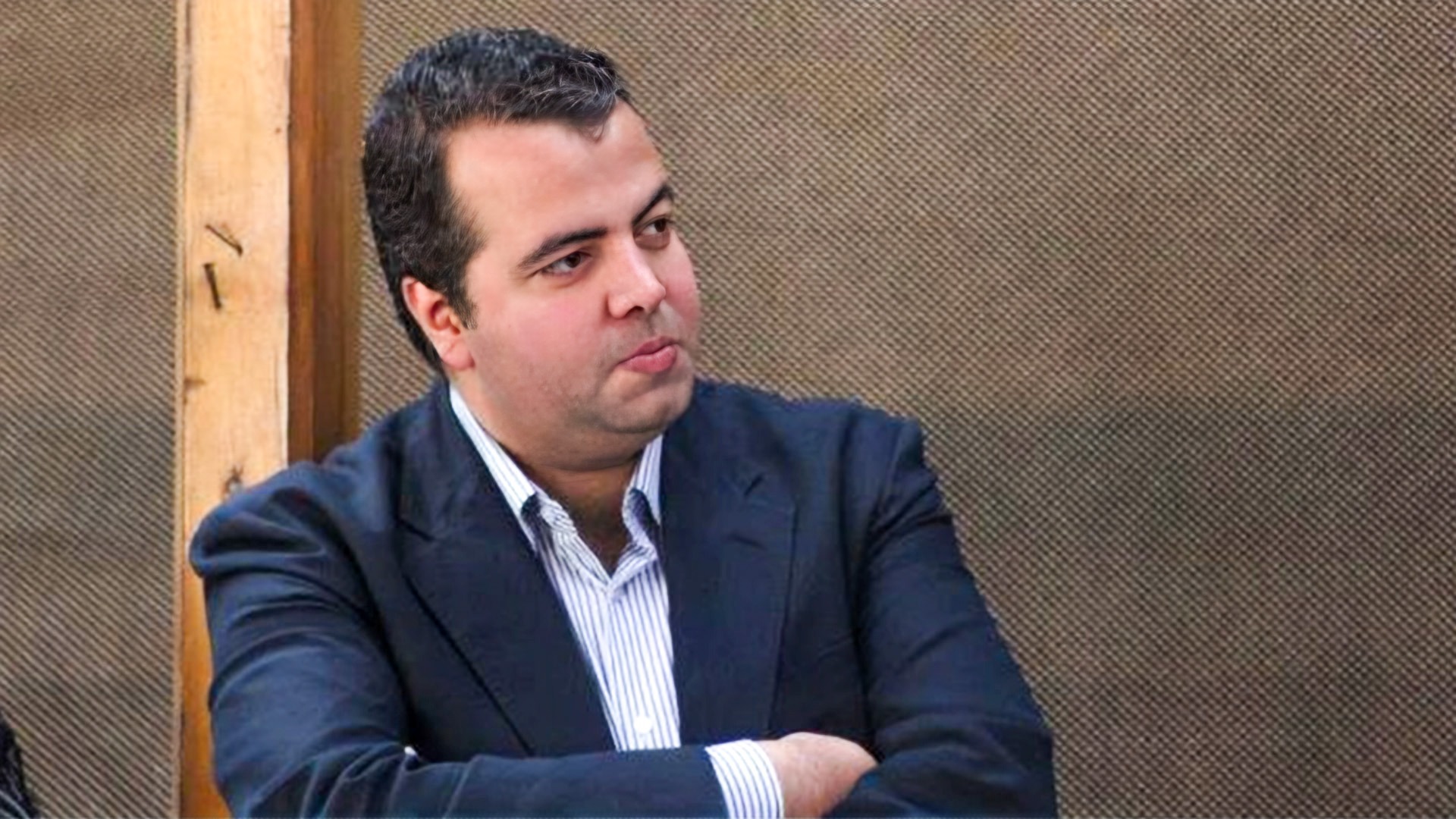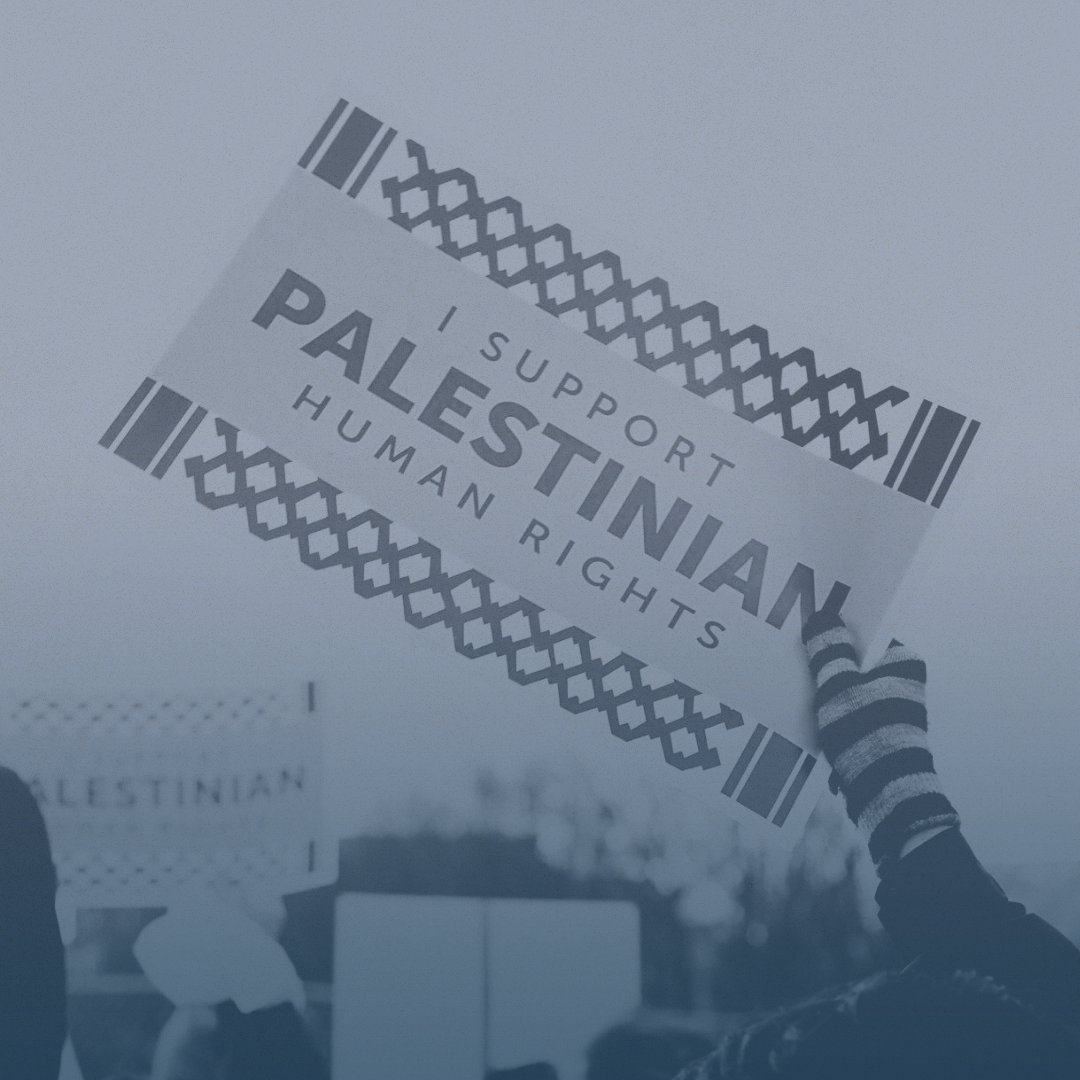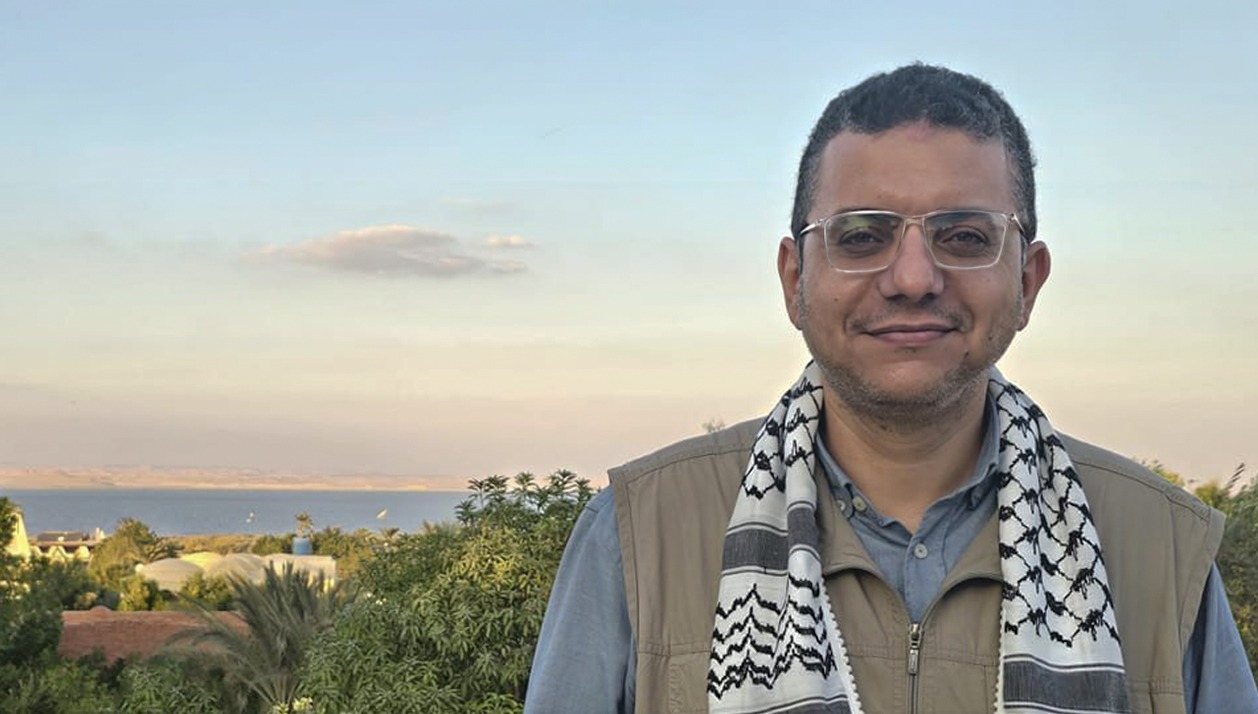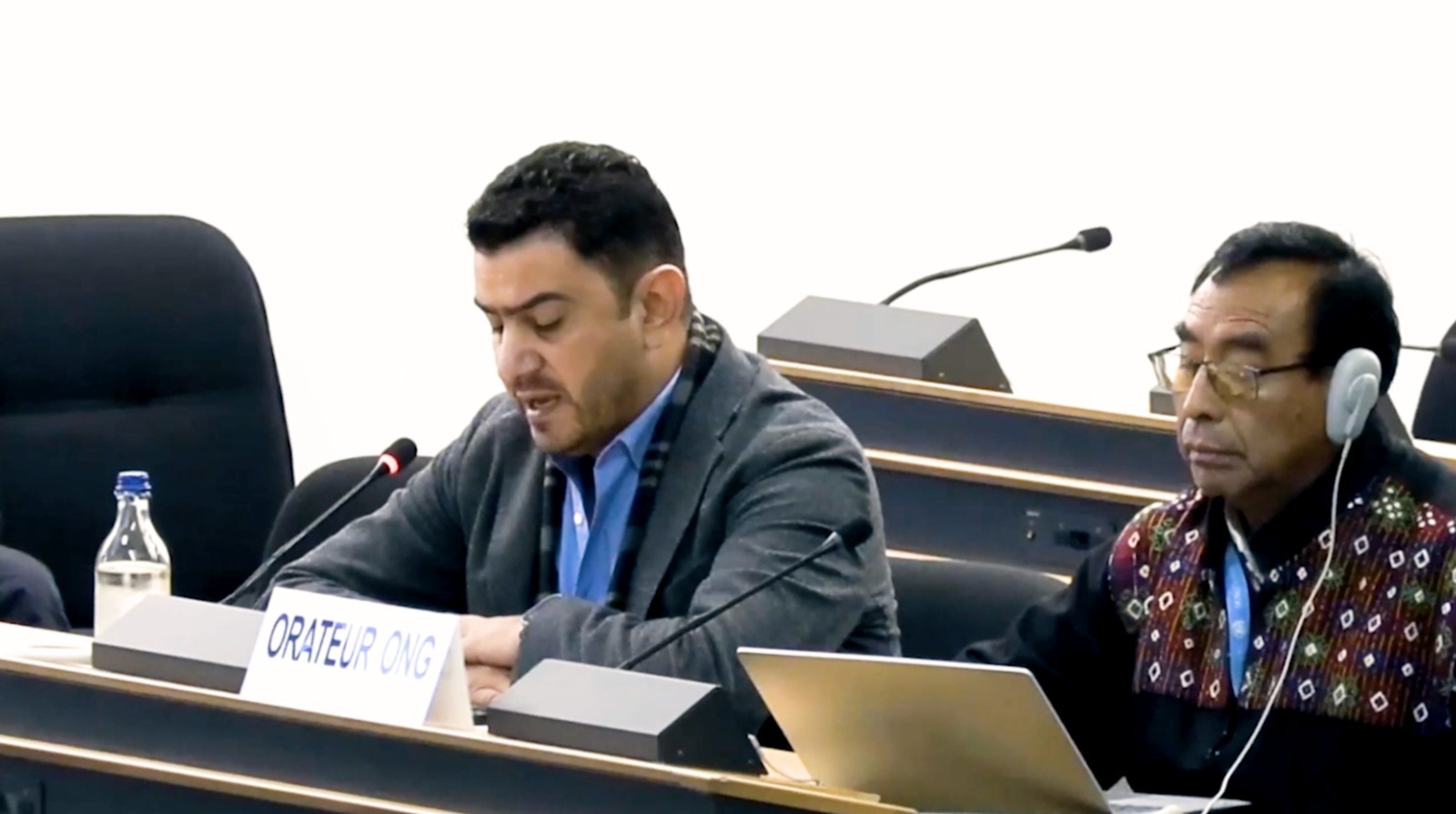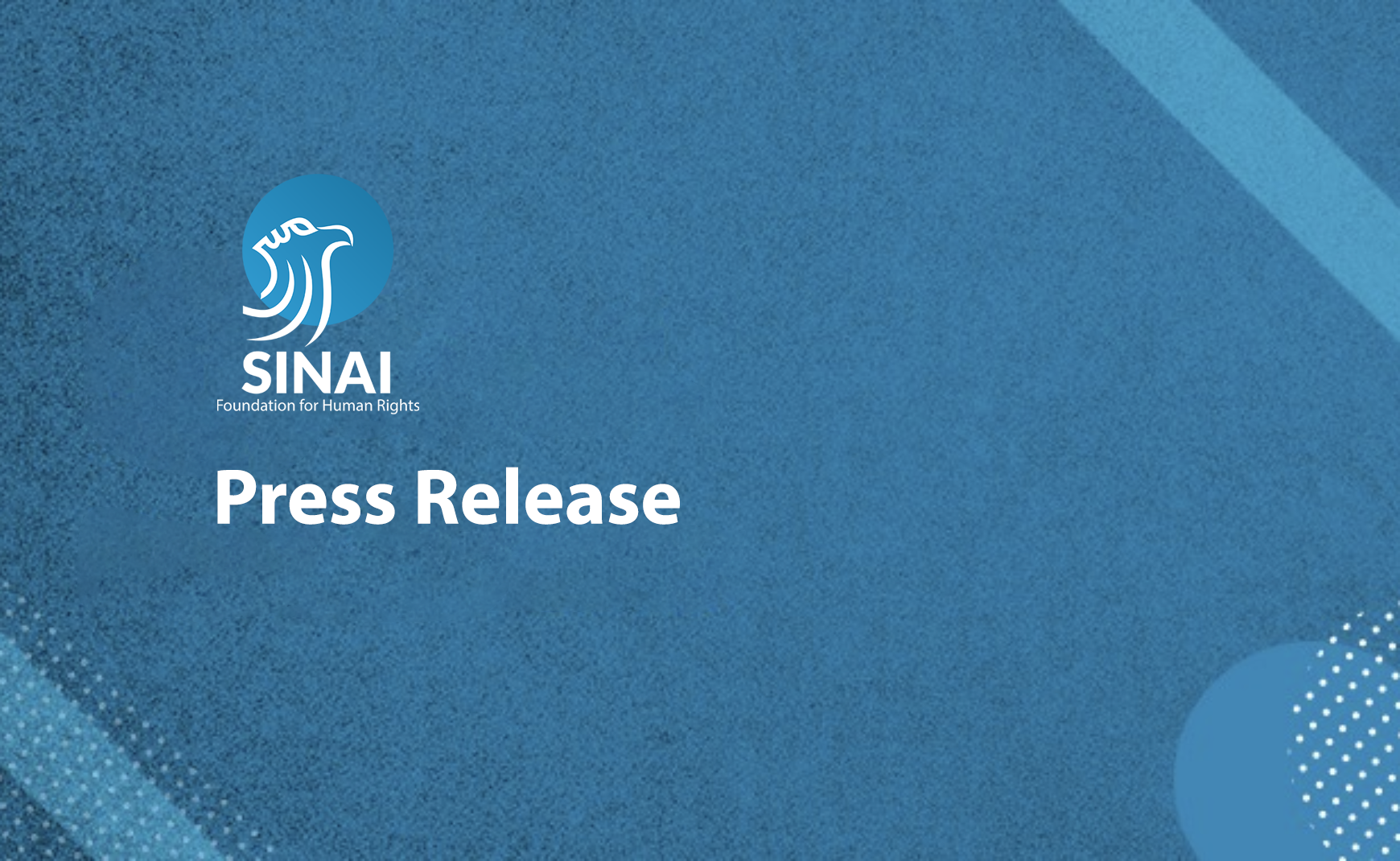
The Climate Conference in Sinai must function as a platform to listen to the grievances of Sinai’s people
London - 29 September 2022
The Sinai Foundation for Human Rights said today that the United Nations Climate Change Conference COP27, taking place in Sharm El Sheikh in the Sinai Peninsula next November, is a stone’s throw from those areas which were officially and intentionally marginalized for decades where grave human rights abuses took place during the decade of war in North Sinai, affecting the environment, infrastructure, and rights of indigenous people.
Since 2013, Egyptian authorities under military supervision displaced tens of thousands of people of North Sinai under the pretense of eradicating the ISIS-affiliate armed group, “Sinai Province”, destroyed farmland and infrastructure, imposed restrictions on movement of people and goods, which led to a total economic paralysis, in addition to the military and police, with the help of armed pro-military militias, arbitrarily arresting thousands of people of North Sinai and forcibly disappearing them. People were subjected to several other serious forms of abuse by government forces and ISIS, from abductions to extrajudicial execution and torture.
Ahmad Salem, the executive director of the Sinai Foundation for Human Rights, said: “It is unbelievable that the Egyptian Government hosts thousands of participants in Sharm El Sheikh in Sinai to discuss the future of life on Earth while it ignores the rights of the people of the region and continues in the grave and strategized violation of their rights. Raising Sinai’s environmental and human rights’ issues, discussing and solving them through and around the Climate Conference COP27 in Sharm El Sheikh is the least that could be done to take into consideration the people of the area hosting the conference.”
The Sinai Peninsula has suffered official marginalization and government failure to invest in its infastructure for decades. Since 2013, the war has raged in North Sinai between Egyptian government forces from one side, and from the other, “Ansar Bait al-Maqdis” Islamist armed group which pledged allegiance to ISIS and changed its name to “Sinai Province” in 2014. The Sinai Foundation for Human Rights, as well as other international human rights organizations like Human Rights Watch and Geneva Academy Of International Humanitarian Law And Human Rights say that the situation in North Sinai since 2014 amounts to a non-international armed conflict to which laws of war apply. Since then, North Sinai has turned into a closed off military zone on which the military imposed a major media blackout to stop the flow of information and prevent independent journalists and observers from reaching the area.
The Sinai Foundation for Human Rights found no evidence that the Egyptian government invited any groups or representatives of Sinai citizens, its tribes, or indigenous communities, to participate independently and effectively in a way that reflects diversity to any of the meetings during or on the margins of the Climate Conference, other than one piece of news on one organization working in coordination with the North Sinai governorate office. It also seems that in the database of NGOs participating in the COP27 conference, there is not one Egyptian organization based in Sinai or that has Sinai as its primary area of activity.
This sector of the community is a reflection of the situation in Egypt in general, even if the government oppression in Sinai is harsher and more brutal with a total decomposition of state institutions and the concept of state law as the military almost completely oversees the situation there with no interference worth mentioning by judicial authorities or other executive authorities, the absence of the Sinai community from the Climate Conference and its events is a natural consequence of the Egyptian government’s policies which worked to stifle all forms of civilian life in Sinai and eradicate conventional forms of expression or views and peaceful assembly in the Sinai community like symposiums, assemblies, and Diwans. During the years of war, the authorities arrested several peaceful Sinai activists who attempted - despite the circumstances and threats - to form independent groups like “the People's Committee in North Sinai” to study the situation and demand the government allow opening people’s assemblies and Diwans and stop the forced displacement policies till consultations with local citizens. This subsequently led to the absence of free voice and peaceful work and opening the way more to armed and extremist groups. It also led to civil society organizations and independent relief organizations in Cairo and the Valley’s inability to effectively work in North Sinai and capture the situation by sending independent expeditions or observers.
The Egyptian government has been trying in the past months - according to independent human rights sources familiar with the COP27 file - through the ministries of external affairs, social solidarity, and environment, to push several pro-government organizations that work in fields that do not criticize government policies to participate in the conference to give the impression that there is participation from within the Egyptian community which was undermined through a relentless targeting policy against all forms of organization and peaceful work since 2013, involving shutting down and besieging organizations, arresting human rights activists and those working in organizations and preventing them from travelling, freezing their funds, and other forms of targeting.
The Sinai Foundation for Human Rights said that “The trick of depending on organizations close to the government and supporting its policies is a strategy used by the Egyptian government for years in different international and regional events in order to cover for the deteriorating human rights situation in Egypt with the absence of opposing voices.” These attempts come at the same time as official statements by the Egyptian Minister of Foreign Affairs Sameh Shoukry regarding aiming to impose restrictions on the freedom of peaceful gathering and protest during the Climate Conference, while it seems to be a reflection of the usual security opposition of any independent events.
Work on the protection of the environment and climate and establishing the proper policies cannot be effectively done unless in the frame of a more inclusive policy that aims to protect the rights of citizens and strengthen diversity and peaceful participation, as environment rights, people’s rights, and indigenous peoples’ rights cannot be separated.
The Sinai Foundation for Human Rights asks all environment activists, human rights activists, and independent organizations participating in the conference to take into consideration the place where the conference is being held and to try and allot a part - each according to their capacity - of their efforts during the conference to shed light on, stand in solidarity with, and discuss the problems of the people of the hosting land. The foundation also asks governments of participating countries to deliver a clear unmistakable or ambiguous message to the Egyptian government that oppressing the civil society is unacceptable and that the Egyptian government needs to implement recommendations present in the unprecedented declaration adopted by 32 countries in the UN Human Rights Council in Geneva in March of 2021 to deal with the human rights crisis in Egypt. Also, that any retaliation against opposing voices before or after the conference will be taken seriously in the frame of a relationship that is the bases of human rights as a core.
Salem said: “Different governments and independent activists in the Climate Conference in Sharm El Sheikh have a real chance to recount the suffering of the people of Sinai who live in a nightmare of continuous abuses so close to where the conference is being held. They have to discuss those abuses with the Egyptian government and deliver the voices of those denied participation and speech.”
More information:
In previous months, many high-ranking Egyptian government officials, including President Abdel Fattah al-Sisi himself, mentioned that the end of military operations in North Sinai is close with the clear decline in power and attacks of “Sinai Province”, however, the effects of the war are still ongoing, and no one is being held accountable for the grave abuses and there is no real remedy for the situation. Following are some of the most important urgent files related to human rights and environment in the Sinai Peninsula, which the Sinai Foundation for Human Rights believes should have priority in any real and independent conversations in and around the Climate Conference.
First: Compensation and return of displaced people:
The Egyptian authorities need to quickly compensate forcibly displaced people, fairly and transparently, as well as allow anyone who has received compensation to appeal it before independent courts. The authorities also need to allow forcibly or otherwise displaced people to return to their lands in the nearest possible chance the security situation allows, after ensuring their lands are cleared of mines planted by ISIS militants. Additionally, they need to repair damages done to victims of the war and abuses and investigate those abuses transparently and independently.
Previous human rights reports prepared by Human Rights Watch, including one with which the Sinai Foundation for Human Rights assisted, revealed that the Egyptian military demolished more than 12,350 buildings in North Sinai between 2013 and 2020, most of which were homes, which is a grave and strategized violation of the rules of the International Human Rights Law and the International Humanitarian Law, which is possibly a war crime. Hundreds of those displaced families remained uncompensated for years after the demolition of their homes, and with no government support to find alternative housing. The government plans to rehouse them in the new city, “New Rafah”, are ambiguous and unclear, especially with previous official statements that point to the authorities’ intention to sell the housing units in residential buildings to those interested, in a shameful behavior that points to the desire to make a profit off of the war that destroyed the lives of people of Sinai after the government’s failure to offer fair and fulfilling compensations.
Second: Taking into consideration the rights of Sinai communities as “indigenous people”
The people of Sinai faced in years of war - and before - vicious smear campaigns in media controlled by the government and security authorities, including accusations of treason and degrading and labeling them as a community as outlaw groups or non-Egyptian.
The term “indigenous people” clearly appears in the description of people of the Sinai Peninsula in recent official Egyptian government documents, like a file detailing the environmental work plan in South Sinai governorate published in 2004-2005.
The international law does not give a specific or universal definition of the term “indigenous people”, but the principles present in the UN declaration on indigenous peoples’ rights stress on the principle of self-identification, which is the community’s identification of itself as an indigenous community. Many people of Sinai refer to themselves as such, with the rooted historical feeling of injustice by the central Egyptian government. Among the principles present in the African standards for indigenous peoples' rights, cultural and traditional distinctiveness, and historic continuity of this distinctiveness from the dominant society, in addition to having those distinct costumes, traditions, and culture be dependent on the ability to continue living on the land, owning it, and having the right to use it, plus the factor of geographical or forced isolation and facing historical discrimination and marginalization. All those standards apply to hundreds of thousands of inhabitants of North and South Sinai and its tribes and clans, despite many of Valley people migrating there in previous decades and living alongside the people of Sinai.
Authoritarian governments usually dislike the idea of “indigenous people” and promote speaking on the rights of indigenous people as provoking trends of separation or self-governance. This, however, is untrue, and considering indigenous people does not necessarily mean calling for separation or the like.
Regarding the people of Sinai as “indigenous people” helps deepen the human rights approach regarding their treatment, as well as working in a more fundamental fashion on understanding their historic issues and grievances and finding solutions for them. For example, article 7 of the UN Declaration on the Rights of Indigenous Peoples states that indigenous people have the right to life and personal and physical safety, as well as their collective right to live freely and peacefully, and article 8 of the same declaration states their right not to be subjected to forced assimilation or destruction of their culture. Regarding the recent abuses, Egyptian authorities - till the time of writing this report - make weak excuses to expropriate lands and farms, especially by using the excuse that the people of Sinai have no title deeds recorded in Shahr al‑'Aqari (land registry), and that some of them are not originally Egyptian despite having lived in Egypt for decades. The rules of the International Human Rights Law regarding the right to housing and specifically for indigenous people are clear and definitive in that what defines land ownership is not only papers and deeds registered at central government authorities, but also long-term use. People of Sinai have inhabited those lands, farmed them, and used them in different ways for many years before the Egyptian republic was established in 1952 and before the birth of the Egyptian Shahr al‑'Aqari (the authority concerned with registering property ownerships) in 1946. Article 8 of the UN declaration also states that indigenous people are in no way to be subjected to actions that aim or lead to the expropriation of their lands or resources or forceful transfer of ownership.
Guarantees present in the International Human Rights Law regarding forced displacement involve the must to take into consideration, and specifically, the rights of indigenous people, if transferring them was a necessity, including preserving their costumes, traditions, and culture when transferring the inhabitants from one place to another, in addition to the original principle that requires governments to offer land for land, as monetary compensation is not sufficient when land is expropriated and people are displaced. All of those guarantees were completely crushed by the Egyptian military’s policy in Sinai, which remains the actual ruler in the area, regardless of any other state authorities there. The Egyptian government did not offer land for land, instead, it offered in many instances minimal and unrewarding monetary compensations. It also offered - in the few cases where it did provide alternative housing - to house people in apartments in tall residential buildings, which is contrary to the costume and traditions of the people of Sinai of living in small or medium sized family houses fenced off and surrounded by farmland or a “yard” for the family.
Third: Ceasing the group punishment policy and restrictions on movement
The war since 2013 has greatly affected the trade and economic activity in North Sinai, as military checkpoints severed the connection between cities and villages, and the military imposed very oppressive restrictions on the crossing between Sinai and the mainland through al-Salam Bridge and new tunnels recently established. Al-Salam Bridge remained technically closed for years. Till the time of writing this report, Egyptians who do not live in Sinai need prior security clearance acquired through a very complicated process to be allowed into North Sinai. The process of acquiring such clearance could take days or weeks, and there are no clear or transparent rules for it.
The strict restrictions on freedom of movement also included the prohibition of use of beaches and waters along the Mediterranean coast in North Sinai for any activities, recreational or trade, and fishermen have also been prohibited from fishing in Bardawil lake and the Mediterranean coast for years. Additionally, government policies have led to frequent power outages and disruption of basic services like drinking water and communication in various areas of North Sinai.
Fourth: Ceasing the policy of razing farmland, and reevaluating development plans
The Egyptian military destroyed most farmland in North Sinai during the years of the war. An analysis of satellite images done by Human Rights Watch in 2021 showed that approximately 6000 hectares (around 14,300 feddans) of farmland were destroyed, burned, or razed. The government also transferred ownership of vast expanses of land in North Sinai to the armed forces, with no regard to the lives of the inhabitants and their right to use their resources.
In “development” projects, the government always launches the projects with no real community engagement regarding the value of those projects, their use, and their potential effects on the environment and people’s rights. For example, President al-Sisi issued a decree transferring ownership of the Arish port to the Ministry of Defense and allocating an expanse of land around the port to it on the pretext of developing it, which meant displacing around 6000 families and demolishing more houses in that area. This happened despite the existence of studies that show the possibility of building a completely new port outside of residential areas on the coast expanding for hundreds of kilometers. The presence of the port in a residential area also likely means the passing of large trucks and ships and the rise in environmental and noise pollution in the block.
Fifth: Giving the community space and allowing peaceful opposition
President al-Sisi’s government has to - if it is serious in its statements regarding concern for the climate, environment, and human rights - lift the iron fist of security authorities off of the community and civil society in North Sinai, and reconsider government institutions and the concept of state of law by releasing thousands of Sinai people who were arbitrarily or unjustly arrested, putting an end to the authority of armed pro-military militias within tribal communities, and revealing the fate of tens - and maybe hundreds - of forcefully disappeared persons. The authorities also need to shut down all secret military prisons and transfer everyone detained in them at once to official detention centers that fall under judicial and legal oversight and respect the basic rules in treating prisoners. Additionally, activists and independent journalists must be allowed to visit Sinai and work there freely and independently, without the need to organize official “visits” as part of a delegation whose work outline and participants are determined by the government like what has happened before.
Article 18 of the UN declaration on indigenous peoples’ rights states those people’s right to “participate in decision-making in matters which would affect their rights, through presentative chosen by themselves in accordance with their own procedures, as well as to maintain and develop their own indigenous decision-making institutions.”
Free communication for activists and independent groups with popular assemblies, Diwans, and other forms of popular participation in Sinai, with its people, is key to get information and find real solutions. The work of groups with experience regarding the environment to test and study many of the environmental issues in North and South Sinai, including the decline in palm resources, coastal erosion, decrease in groundwater supply, rise in temperatures, threat to marine life and coral reefs, and other problems previously addressed in governmental and non-governmental studies is all impossible if those groups did not feel like there is a safe space to work and communicate with inhabitants where the activist or researcher is not afraid of government retaliation and the inhabitant is not afraid to speak their mind and safely and accurately express problems and observations.
It is known that reaching the cities of South Sinai falls under supervision by security authorities which has in previous months and years stopped political dissidents in many instances from entering the region according to the military and police personnel’s liking in the various checkpoints on the road from Cairo to Sharm El Sheikh, as many political activists said that they were stopped, even during touristic visits, after their IDs were checked in the database present with those officers.
Sixth: Ending the military dominance on projects in North Sinai
Article 23 of the UN declaration on indigenous peoples’ rights states that: “Indigenous peoples have the right to determine and develop priorities and strategies for exercising their right to development. In particular, indigenous peoples have the right to be actively involved in developing and determining health, housing and other economic and social programmes affecting them,” and article 20 states that: “Indigenous peoples deprived of their means of subsistence and development are entitled to just and fair redress.” Looking at the historical marginalization of Sinai and the neglect of its development, under a continuous indirect discourse regarding development that does not happen, this should have been fixed through government plants to communicate with people of Sinai to learn their needs and represent their views in official policies related to development and the environment.
Reality, however, is the exact opposite. The Egyptian Ministry of Defense and intelligence authorities have largely controlled development and economy projects in Sinai in the past years, including construction, mining, ports, airports, land restoration, and fishing projects. Egyptian laws also consider lands in Sinai as - hypothetically - military lands, not belonging to those who owned or invested in them. Additionally, many “civilian” companies working in Sinai are only fronts for intelligence authorities. The Egyptian Environmental Law which necessitates conducting evaluations of the environmental impact of different projects has an almost non-existent impact in Sinai, as there are no studies available to the public or even specialists and researchers on different projects there. The Ministry of Defense’s monopoly of most of those projects necessarily means a conflict of interest between a strong ruling and controlling ministry, the Ministry of Defense, and another weak ministry, the Ministry of Environment, which technically cannot examine, supervise, or oppose any Ministry of Defense projects as it is the actual ruler in Sinai, and in Egypt in general.
Egyptians witnessed a shocking example of the government’s disregard for inhabitants’ views, environmental issues, and rights of indigenous people in “Saint Catherine” area, South Sinai, where it executed serious demolition and building operations in the world heritage site around Saint Catherine monastery in the project known as “The Greatest Manifestation”. According to journalistic and human rights reports, tens of buildings were built in and around the historical Saint Catherine city, with no regard for laws of UNESCO regarding world heritage sites or Egyptian laws governing natural reserves affairs, and “caused large-scale environmental destruction that cannot be mended or treated”, while the government ignores all of those reports and the popular desire to participate in decision making in the name of “improvement” and development.


